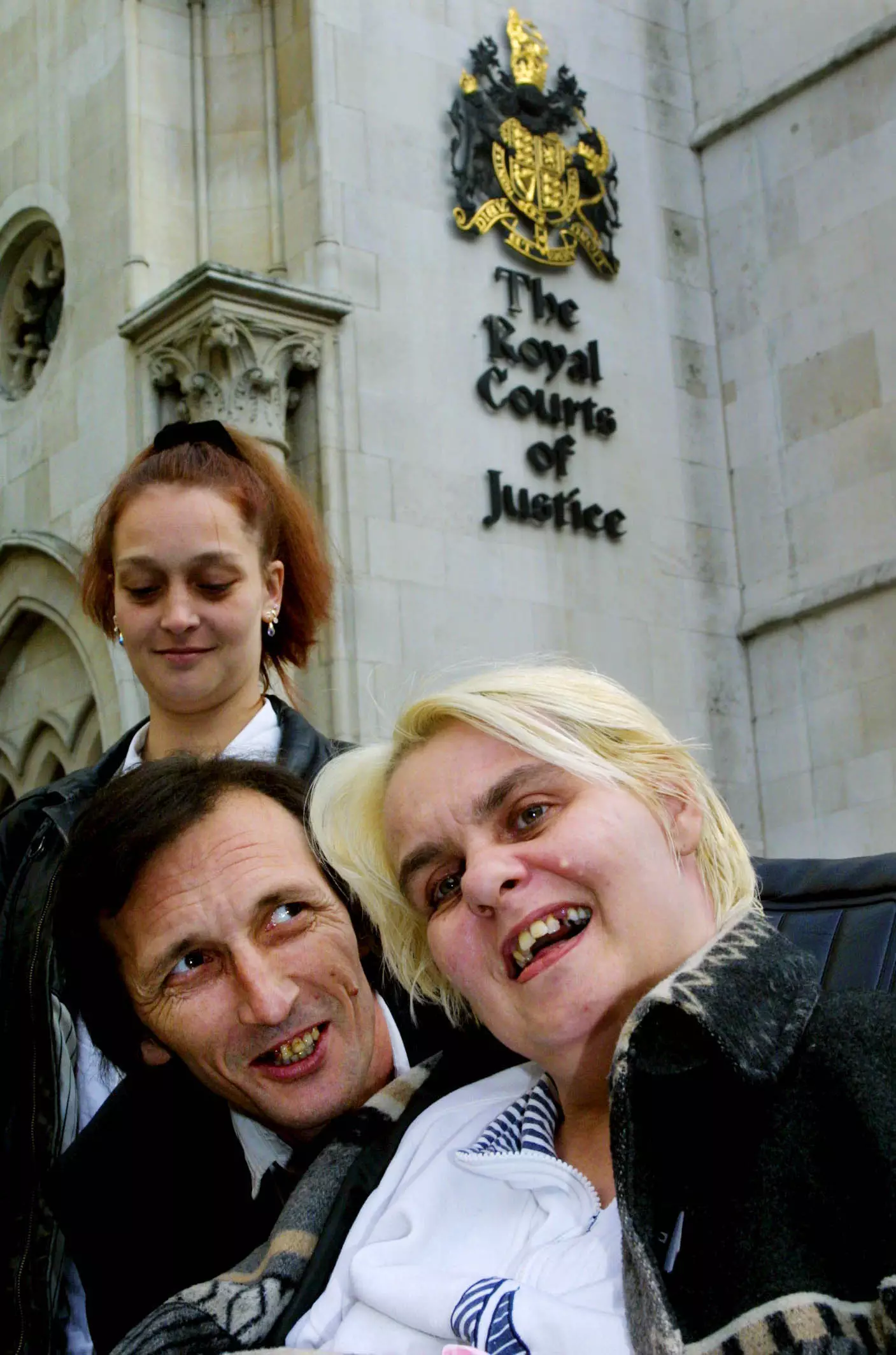
Credit: Getty Images
When a pet you have loved like a family member is really poorly and can't get better, the best thing to do is put your furry friend to sleep.
It's painless, quick and the right thing to do.
Yes, pets and humans aren't the same thing, but surely we all want what is best for whoever and whatever we love?
So why is there a moral debate about the right to die for the incurably ill, with severe disabilities? People living in a vegetative state, who want to have that right? What are the potential pit falls that mean most countries do not allow lawful euthanasia/assisted suicide?
Recently Canada legalised euthanasia in exceptional circumstances. Canada's rules are stringent to ensure that the new legislation is not misused. As reported, the new law "limits the option to the incurably ill, requires medical approval and mandates a 15-day waiting period." Legislation such as this is essential to stop potential manipulation from external factors i.e. greedy family members.
WHAT IS EUTHANASIA?
It comes from the Greek, euthanatos, which translates to 'easy death'. Today, the official definition is as such: "The painless killing of a patient suffering from an incurable and painful disease or in an irreversible coma". In principle, it sounds like a very good idea to put someone out of his or her misery in a dignified manner. It also takes away all the stresses and strains of keeping a terminally ill person in a debilitating state alive, if they wish not to live anymore.
'Euthanasia' and 'assisted suicide' are interchangeable terms. The latter's definition is this: "Suicide effected with the assistance of another person, especially the taking of lethal drugs provided by a doctor for the purpose by a patient suffering from a terminal illness or incurable condition." You are deliberately helping the suicide of another person, but for humane, rather than sinister, purposes.
SWITZERLAND'S "TOURISM SUICIDE"
Currently, euthanasia is illegal in the UK but is legal in many other European countries, most notably Switzerland. So for many it's just a short hop on a Swiss Air flight and a quick dose of what has been labelled "suicide tourism". Some other countries that implement legal euthanasia include the Netherlands, Belgium, Japan, Colombia, Sweden and many others. The laws vary from country to country, but the legality in principle remains.
Many people who wish to die choose Switzerland because the laws are more relaxed compared to others. Assisted suicide was passed as a law in Switzerland in 1942 and it has become commonplace over the years for people to use its services. It's the only nation that allows the practice without the recipient being a Swiss national.
Advert
Dignitas is a not-for-profit organisation that helps people 'die with dignity' in Switzerland. It's website states: "Since 1998, we are the spearhead of the worldwide implementation of 'the last human right'." So far, it has legally ended the lives of thousands of people. Around half the people that use its services are German.
An antiemetic is prescribed to the patient, then half an hour later a lethal overdose of pentobarbital.

Dignitas in Switzerland. Credit Getty Images/AFP & Stringer
Advert
There are, of course, structures in Switzerland to ensure that the law is not misused.
The world is full of money-grabbers. If Ethel or Doris are clinging on to life and, more importantly, a small fortune, it wouldn't be difficult for unscrupulous family members to suggest that it may be more moral to let her die in peace, assisted by a medical professional.
The Swiss Criminal Code guards against this, with the following legislation in place:
"Inciting and assisting suicide: Any person who for selfish motives incites or assists another to commit or attempt to commit suicide shall, if that other person thereafter commits or attempts to commit suicide, be liable to a custodial sentence not exceeding five years or to a monetary penalty.
Advert
"This also includes those assisting the suicide if the motive is selfish. This includes personal gain." So, if this is the case, if someone commits suicide and it was through coercion, that person will be liable to have jail time and/or a fine.
CASES OF LEGALLY ASSISTED SUICIDE
There was a large media reporting of a British couple who agreed a suicide pact. The pair of them had terminal cancer and decided that they both wanted to leave the world together. My personal feeling on this is that if they were sane of mind, had no external influences, and genuinely felt this is what they wanted, then that's their choice. They told friends they were moving from Somerset to a second home in Dorset but instead boarded a flight to commit lawful death by euthanasia.
Their daughter, Helena Conibear, appeared to be supportive of their decision:
"Penny had fought a rare cancer, GIST, since 1992 and Peter's colon cancer had spread to his liver. Their decision in no way reflected on the wonderful and humbling care they have received from their consultant, doctors and nurses, for which the family, and they, were so appreciative." Ultimately, Conibear appreciated it was their choice.
But what happens when the family disagrees over someone's right to die?
There was Jeffrey Spector, who travelled to Switzerland to die because he feared that his tumour on his spine would eventually make his paralysed. The 54-year-old chose this option, despite his wife and three children pleading with him not to go ahead with it.
He reasoned that he wanted to die with dignity, admitting he was 'jumping the gun'. In a statement, Spector included: "I want the ability to have a cup of tea and hold a phone - I want to be able to do these things." Ultimately, his family respected his wishes and flew to Switzerland with him.
Credit: Five News
Advert
This brings along more questions than it does answers. Who has the ultimate right to choose one's mortality? Are the wishes of his family, who love him dearly and vehemently don't want him to commit legal suicide, a factor that should override his wishes? Should he be in sole control of his life choices, irrespective of the opinions of others? It's his life, after all.

Jeffrey with wife Elaine.
CHANGING THE LAW IN THE UK
Advert
Diane Pretty's case raised a massive debate in the United Kingdom regarding the lawful use of euthanasia. Pretty suffered with motor neurone disease and tried to get UK law changed so she could die in her own home. It's a very emotive subject. She couldn't do anything for herself and she was so ill that she couldn't actually commit suicide herself. She wanted her husband to do it for her, but this would be unlawful. She argued that certain articles from the Human Right Act 1998 should prohibit her husband from prosecution. It was rejected in the House of Lords. She died on May 11, 2002, exactly how she feared she would die. This case propelled the subject into the limelight, though the debate still rumbles on.

Diane Pretty with husband Brian. Credit: PA/Peter Jordan
SHOULD EUTHANASIA BE LEGALISED?
After researching this, I'm still none the wiser as to what I think about euthanasia. I know that I have seen 90-something people I care about getting pilled up, sitting in a chair and slowly deteriorating both in body and in mind. What's the point? Surely, pills to ease the pain should suffice if that person is sound of mind and wants to fall asleep and never wake up? If a person doesn't want to keep living, what's the point in making them?
But then there's the heartbreaking cases, like that of Jeffrey Spector, that make it a really blurry subject for me. His family has had to live with his decision, even though his illness, at that time, was not debilitating. But, ultimately, it was his choice.
UK company 'Care Not Killing' has the aim of looking after people with respect and dignity, but vehemently rejects the claim that euthanasia/assisted suicide is a legitimate option.
Its website states: "Care Not Killing is a UK-based alliance of individuals and organisations which brings together disability and human rights groups, healthcare providers, and faith-based bodies, with the aims of promoting more and better palliative care; ensuring that existing laws against euthanasia and assisted suicide are not weakened or repealed [and] influencing the balance of public opinion against any further weakening of the law."
Furthermore, it states that euthanasia puts unduly pressure on a potential patient for the following factors: "Any change in the law to allow assisted suicide or euthanasia would place pressure on vulnerable people to end their lives for fear of being a financial, emotional or care burden upon others. This would especially affect people who are disabled, elderly, sick or depressed." All very good points!
Adversely, 'Dignity In Dying' also puts forward valid points as to why assisted suicide should be legalised in the UK. Currently, someone complicit in assisted suicide could get up to 14 years in jail. The website states: "Without a change in the law, dying people will suffer against their wishes at the end of life and will continue to make decisions without the advice of medical or social care professionals.
"We believe that high-quality end-of-life care should be complemented by the choice of an assisted death for terminally ill, mentally competent adults who meet strict safeguards and feel their suffering has become unbearable.
"Some dying adults attempt to take their own life, some refuse food and water to bring about their death, and many ask loved ones to help them die. Those who can afford to may travel abroad for an assisted death. and, over the last few years, one Briton per fortnight has travelled to Switzerland to die."
Again, very valid points. Both sides of the coin bring thoughtful discussion to the table. And if it's just a flight away now, wouldn't it make sense to make euthanasia legal in the UK and worldwide too?
What are your opinions on legalising euthanasia? I would be very interested to find out.
I've found a fence. And I'm sat right on it.
Words Patrick Hulbert
Featured Image Credit: